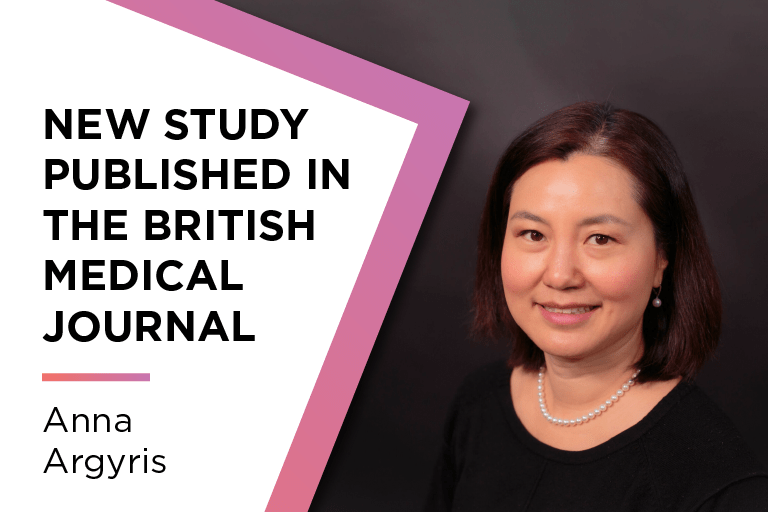Young Anna Argyris, Ph.D., associate professor in the Department of Media and Information, is part of an international team studying the detrimental effects of vaccine misinformation on social media.
In a study published January 16 in the British Medical Journal (BMJ) and co-authored with researchers from Columbia Mailman School, Argyris and her colleagues conclude “vaccine misinformation on social media has strong effects on behaviour (sic), and the evidence base for interventions to reduce these effects is limited.”
The British Medical Journal is ranked eighth among all journals in the world. Its highly rated “impact factor” indicates that its content is frequently cited within medical and academic communities in commonwealth countries. The publication of Argyris’ work in the BMJ underscores the strong credibility of her research.
Argyris’ research has been centered around this topic since 2018. In 2022, she and her graduate student colleagues published a study on intervention-based social media campaigns. That caught the eye of Dr. Kai Ruggeri, a health policy and management expert at Columbia University, who then asked Argyris to sign on as a contributor to the BMJ article.
“The focus of this BMJ article is the influence of social media on vaccine uptakes, based on the empirical evidence, not suspicion or popular beliefs as portrayed by non-scientific mass media,” Argyris explained. “I provided the BMJ co-author team with the framework, insights, and lessons learned from our prior systematic review.”
Argyris says there are two main reasons why anti-vaccine messages have reached so deeply and so quickly into the global population, especially during the COVID-19 pandemic.
“First, the dedicated groups of anti-vaxxers, who are mostly concerned parents and citizens, have built collective and shared identities as social activists against institutionalized healthcare systems,” she said. “Social media platforms enabled them to build and maintain connections with like-minded individuals.
“Second, many have politicized vaccines to further their exterior motives. These propagandists attempted to ‘own’ vaccine rhetoric during the pandemic, causing the exponential growth of vaccine content on social media. As a result, vaccines, which are not political in nature, have become politicized and misportrayed.”
The antidote, Argyris says, is trust. She says health care providers must have an active role in designing and implementing pro-vaccine interventions.
“Doctors, nurses, and pharmacists are the contact points with individuals,” she said. “Without working with them, no mass media or social media campaign can build trust in vaccines.”
She adds there are also new AI-driven interventions in the works that may be effective in counteracting vaccine misinformation.
Argyris says over the next 10 years, she intends to continue her research to identify how health misinformation proliferates through social networks and to develop technology-empowered interventions, including AI, that aid individuals’ health decisions.
“My research aims to alleviate bias, misjudgment, and delays in decision-making, thereby improving effectiveness and efficiency—and, consequently, equity and quality of life in our society.”
By Kevin Lavery
